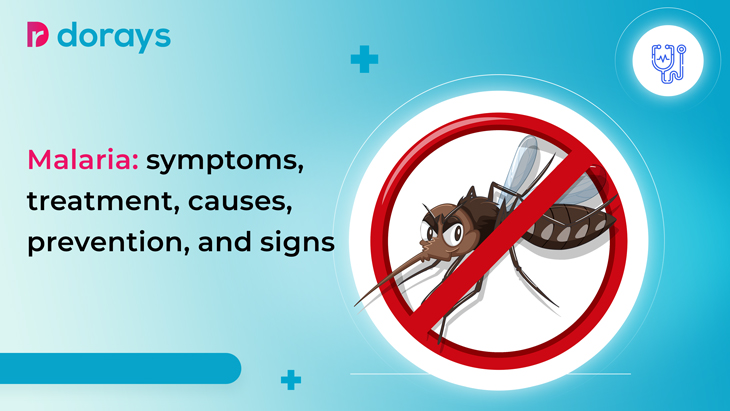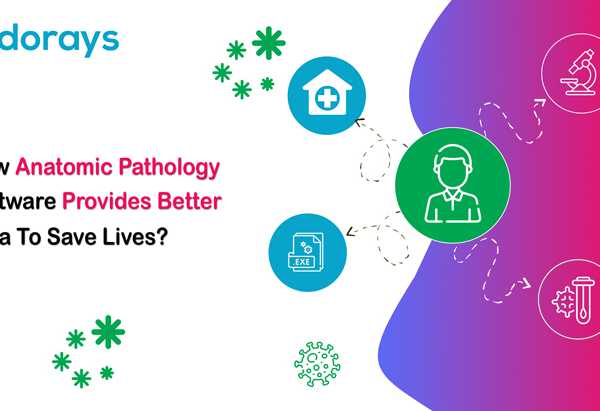Malaria is a life-threatening disease spread by a parasite carried by particular mosquitoes in tropical areas. It is a severe hazard to human health worldwide and a primary cause of sickness and death in many underdeveloped nations, particularly among children.
Pathology lab software can help you detect the disease in its initial stage. We’ve tried to compile everything you need to know about the disease in this post.
What is malaria?
It is a life-threatening disease that spreads when a human gets infected. Tiny parasites can infect mosquitoes, and then the mosquito injects malaria parasites into the person’s bloodstream when it bites.
If not treated on time, it can cause serious health problems, including seizures, brain damage, breathing problems, organ failure, and death. Consult your healthcare practitioner about malaria prevention if you’re traveling to an area where the disease is frequent.
Signs and symptoms
It has general symptoms of fever, headache, and nonspecific aches and pains. Pyrexia is a frequent ailment that causes nausea, vomiting, diarrhea, and stomach cramps in certain patients. A fever, cough, and tachypnoea (rapid breathing) are common symptoms in children. The liver and spleen may be visible, and the illness can progress quickly.
Malaise, a slowly rising temperature with perspiration over several days, a headache, and nausea are symptoms of the other malarial diseases, P. malariae, P. ovale, and P. vivax. Untreated attacks can last from a few minutes to several days, common relapses. Relapses can happen at any time and can last up to five years.
How is malaria treated?
Malaria can be deadly, especially if infected with the parasite P. falciparum. Your doctor will advise you on medications based on the parasite you have.
Because parasites can develop drug resistance, the treatment may not effectively cure the sickness. Your doctor may need to ultimately manage your problem with many prescriptions or change medications if it occurs.
Furthermore, some malaria parasites develop liver stages, such as P. vivax and P. ovale. The parasite can remain dormant in your body for an extended period before reactivating and triggering an infection relapse.
What causes malaria?
The parasite is transferred into a person’s circulation by an infected mosquito, where it multiplies. Five different types of malaria parasites can infect humans. In rare situations, malaria-infected pregnant mothers can pass the disease on to their unborn offspring. It can occasionally transmit during blood transfusions, organ donations, and hypodermic needles.
There is a seven- to 30-day period after a mosquito bite before symptoms manifest. P. vivax takes 10-17 days to incubate, but it can take much longer (up to a year and, in extreme cases, 30 years!). The incubation period for P. falciparum is generally short (10-14 days).
Prevention
If you stay in or are visiting a malaria-prone location, take precautions to avoid mosquito bites. Mosquitoes are at their most active between the hours of dark and dawn. It would be best if you took the following precautions to prevent mosquito bites:
Make sure your skin is protected.
Wear long-sleeved shirts and pants. Tuck in your shirt, and you should roll pant legs into socks.
Use insect repellent on your skin.
Use an insect repellent that the Environmental Protection Agency has approved on any exposed skin. DEET, picaridin, IR3535, oil of lemon eucalyptus (OLE), para-menthane-3,8-diol (PMD), and 2-undergone are among these repellents. Do not spray your face with a spray.
Sleep with a net over your head.
Bed nets, especially ones treated with insecticides like permethrin, can help keep mosquito bites at bay while you sleep.
Final Thoughts
When travelers visit areas where malaria is endemic, health professionals must be prepared to assess, advise, and educate them about the potential hazards they may experience. Early diagnosis makes treatment more effective. It’s also essential to seek treatment to stop malaria from spreading to others.



Leave a Comment